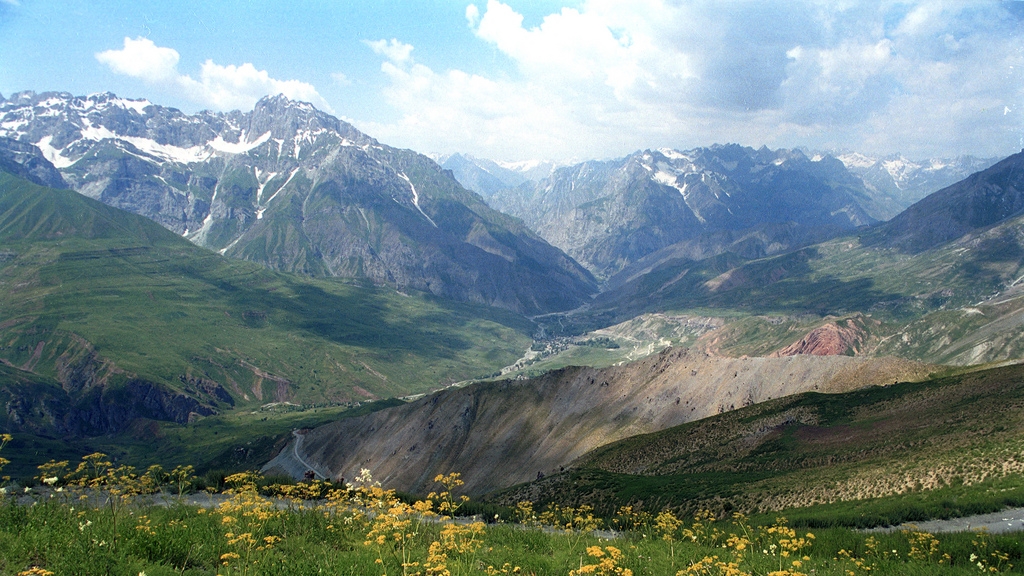LATEST DEVELOPMENTS
The Assessment Studies for the proposed Rogun Hydropower Project in Tajikistan have been finalized after the fifth round of riparian consultations was completed and comments from government and civil society stakeholders were carefully considered. This is the result of four years of independent, transparent, and consultative analysis to assess the feasibility of the proposed Rogun Hydropower Project from the technical, economic, environmental, and social perspectives.
The final Techno-Economic Assessment Study (TEAS) Phase 2 Summary Report and the final Environmental and Social Impact Assessment (ESIA) Report were disclosed on September 1, 2014 on the Government of Tajikistan’s and the World Bank’s websites at www.energyprojects.tj and www.worldbank.org/eca/rogun/. In addition, the Panels of Experts’ reports and the World Bank report on the 5th riparian consultations were disclosed.
The World Bank also disclosed on September 1 the "World Bank Note - Key Issues for Consideration on the Proposed Rogun Hydropower Project". The Note summarizes the process and key findings from the assessment. It also identifies additional issues for consideration in the context of the proposed project, including Sector and Economic Management Framework and Transboundary Water Management.
All final reports can be downloaded here: Final Reports related to the Proposed Rogun HPP.
BACKGROUND
In response to a request by the Government of Tajikistan, the World Bank supported two studies to evaluate the viability of the proposed Rogun Hydropower Project (HPP) according to international standards:
- Techno-Economic Assessment Study (TEAS)
- Environmental and Social Impact Assessment (ESIA)
These Assessment Studies were conducted by international consultant firms contracted on a competitive basis by the Government of Tajikistan and financed through an IDA project with assistance of World Bank experts. The studies were contracted to two international firms and the procurement process was monitored closely by the World Bank. A consortium led by Coyne & Bellier undertook the TEAS (contact signed on February 8, 2011) while Poyry Energy Ltd. of Switzerland directed the ESIA (contract signed on March 25, 2011).
The Assessment Studies examined the potential benefits and risks of the proposed Rogun HPP and comprehensively evaluate its technical, economic, social, and environmental viability based on international standards and practices and in accordance with the World Bank’s policies and procedures. The Studies are to provide the Government of Tajikistan, the other Central Asian countries and the international community, including the World Bank, with information about key elements associated with the proposed Rogun HPP, such as the project’s technical soundness and safety, economic viability and compliance with all relevant environmental and social safeguards.
The World Bank’s overall engagement in the energy sector supports the Government of Tajikistan’s strategy to ensure reliable supply to consumers, deal with the severe winter energy shortages, reduce electricity system losses and strengthen financial management system to improve the financial condition of the energy sector, and develop a regional trade scheme to achieve sustainable export of summer surplus electricity.
The World Bank’s Commitment to International Standards
In supporting the Rogun Assessment Studies, the World Bank had an expanded role to ensure credible, transparent assessments that were open to international scrutiny and riparian dialogue. In this context, the World Bank funded two independent Panels of Experts: an Engineering and Dam Safety Panel and an Environmental and Social Impact Assessment Panel. The role of the Panels was to ensure due diligence and international quality standards, as well as objectivity and credibility through independent advice and guidance. The Panels of Experts were composed of recognized professionals selected by the World Bank; they questioned the assumptions of the consultants and requested additional data or investigations, where needed, to meet rigorous technical, economic, and social standards.
The proposed Rogun HPP would be the highest dam in the world. Due to significant changes in hydropower development and climate science over the past three decades, it is critical that Tajikistan applies modern international knowledge and standards to ascertain the public safety and long-term economic viability of such a project.
According to international practice, construction should not begin on any project before the technical, economic, and social viability is fully assessed. Otherwise, significant risks could be posed to public safety. In the spirit of internationally accepted norms, the World Bank and the Government of Tajikistan reached an understanding in 2010 that no new construction would commence until after the Assessment Studies have been prepared, reviewed by the Panels of Experts, then shared and discussed with riparian nations. It was also agreed that there would be no further resettlement of residents from the proposed reservoir area until there is a resettlement framework plan in place to provide proper compensation or alternative housing.
